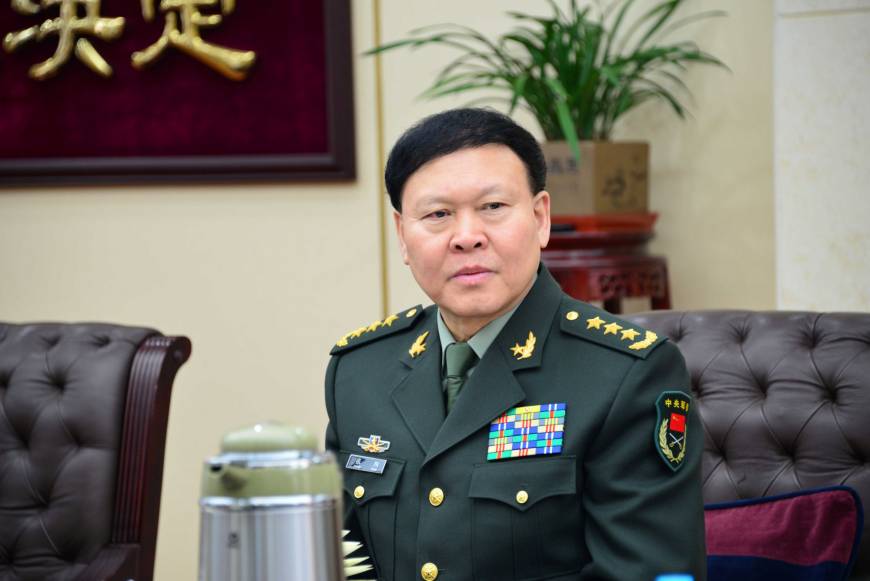This material belongs to: The Japan Times.
A top Chinese general hanged himself at his home last week after becoming the latest prominent official to be swept up in President Xi Jinping’s wide-ranging corruption campaign, state-run media reported Tuesday.
Chinese People’s Liberation Army Gen. Zhang Yang, director of the powerful Central Military Commission’s (CMC) political department, was under investigation over alleged links to disgraced former Gens. Guo Boxiong and Xu Caihou, who had both served as vice chairmen of the commission, the official Xinhua News Agency reported.
The probe had verified that Zhang “gravely violated discipline” and was “suspected of giving and taking bribes,” though the origin of a vast amount of assets was unclear, Xinhua said, citing the commission.
“On the afternoon of Nov. 23, Zhang Yang hanged himself at home,” Xinhua reported.
A commentary posted to the Chinese Defense Ministry’s website said the investigation into Zhang began on Aug. 28.
It said he had “lost his moral bottom line” and had used suicide to “escape punishment from the party and country.”
“This former general of high position and great power used this shameful way to end his own life,” the commentary added.
Beijing has embarked on a broad crackdown on corruption under Xi, with the powerful Chinese leader vowing to target both “tigers and flies,” or high-level officials and local civil servants alike.
Xi’s campaign has taken down heavy hitters including former security chief Zhou Yongkang — the most senior-ranked official since the founding of the People’s Republic of China to be tried and convicted of corruption charges.
It has also targeted widespread graft in the military, detaining and investigating Xu on suspicion of bribery — including the practice of exchanging “cash for ranks” — in March 2014, in one of the highest-profile corruption investigations in PLA history.
At the time of his arrest, Xu held the military’s top post, as vice chair of the CMC. The chairmanship is customarily occupied by a civilian, usually the general secretary of the Communist Party.
Xu was expelled from the Communist Party in June 2014, but died of cancer while he was facing legal proceedings from the corruption charges.
Guo was investigated in 2015 and later charged with taking bribes in exchange “for aiding in the promotion (of officers),” according to the Communist Party’s graft watchdog, the Central Commission for Discipline Inspection.
Tuesday’s Defense Ministry commentary explicitly linked Zhang’s alleged corruption to Guo and Xu.
Zhang’s “serious violation of discipline and law once again warned us that the full and complete removal of Guo Boxiong and Xu Caihou influence … and the fight against corruption has a long way to go,” the commentary said.
Rooting out corruption is at the forefront of Xi’s ambitious goals for China’s military. During a speech to the twice-a-decade Chinese Communist Party congress last month, Xi set a 2050 deadline for transforming the country’s military into “world-class forces.”
In a glowing profile of the Chinese leader earlier this month, Xinhua said that “more than 100 PLA officers at or above the corps-level, including two former CMC vice chairmen, have been investigated and punished” since the party’s 18th congress in 2012.
“The number is even greater than that of army generals who died in the battlefield during revolutionary times,” it boasted.
But experts say the Chinese leader has also used the anti-corruption campaign to further solidify his grip on power by targeting rivals, ensuring that any threat to his reign be kept in check.
 info@anticorr.media
info@anticorr.media

